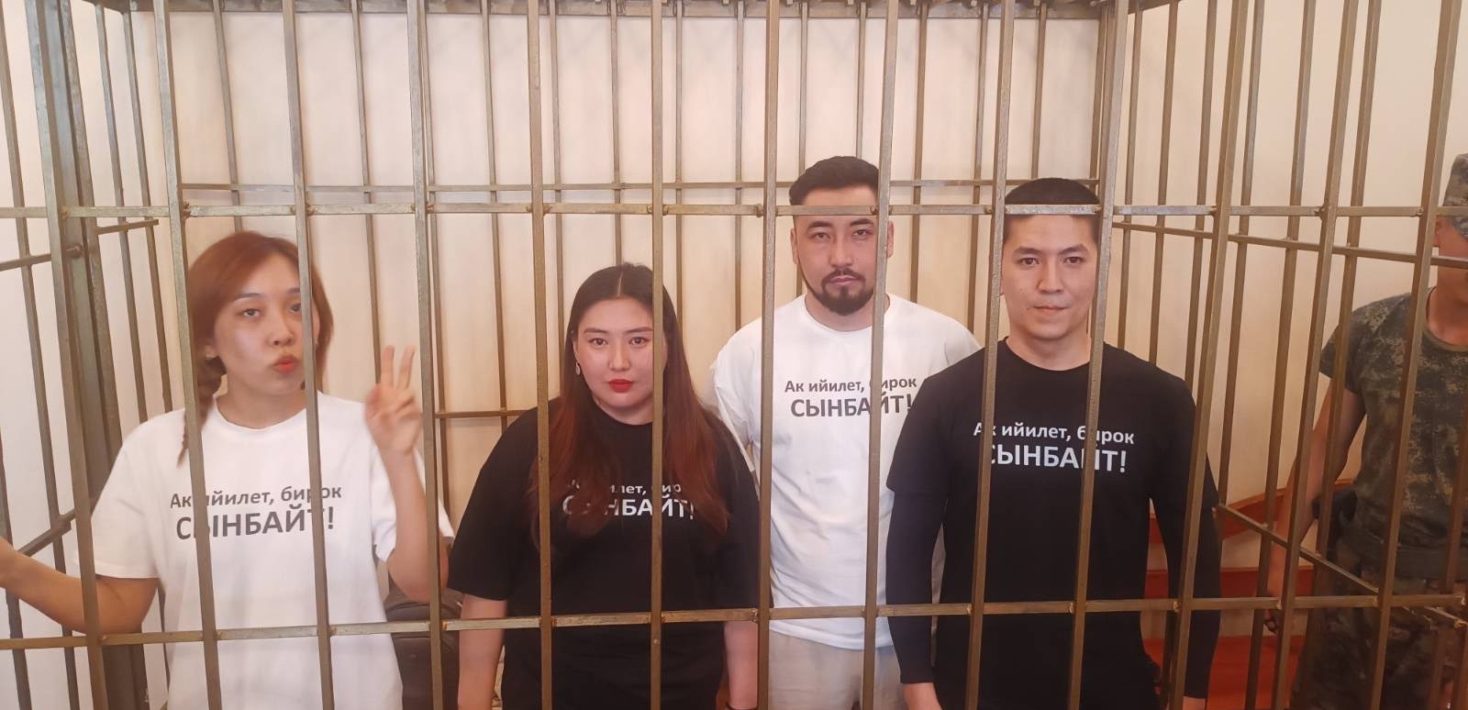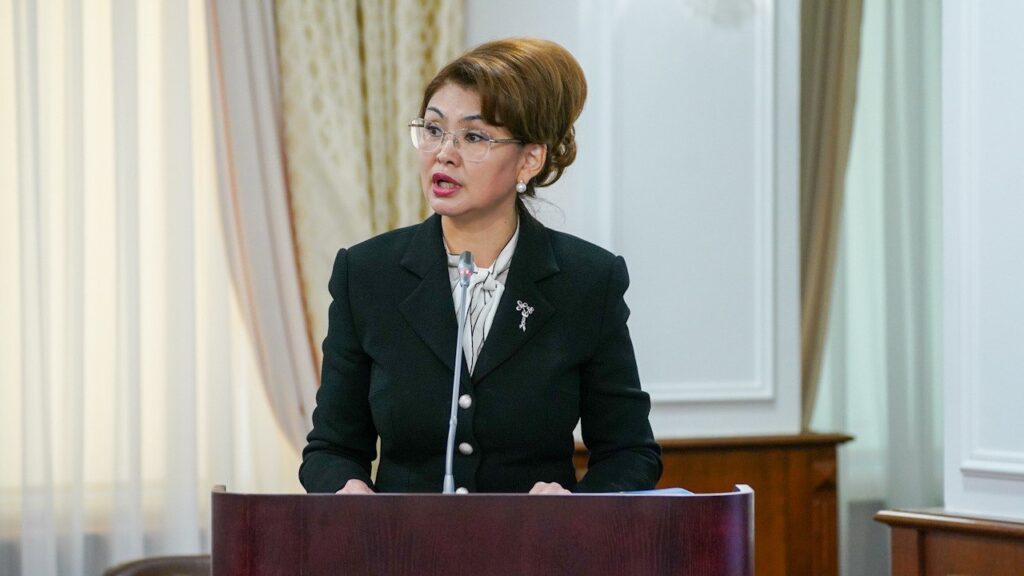After almost a year of proceedings, the Lenin District Court in Bishkek has convicted journalists Makhabat Tazhibek Kyzy and Azamat Ishenbekov of the Temirov Live project. Both were sentenced for calling for “mass disorder;” a verdict which the media project founder, Bolot Temirov, considers revenge for their professional activities.
According to the court ruling, Makhabat Tazhibek Kyzy (head of Temirov Live) was sentenced to six years in prison, and journalist Azamat Ishenbekov, to five years. Two journalists, Aktilek Kaparov and Ayka Beishenalieva, were sentenced to three years of probation, whilst the remaining seven project employees were acquitted.
On January 16, 2024, law enforcers searched the office of Temirov Live and seized all editorial equipment in the interest of the investigation. Eleven employees of the publication were searched and detained. Later, the Kyrgyz Interior Ministry said they had studied Temirov Live and Ait Ait Dese’s content on social networks and that results of the forensic examination had shown that the employees of the editions had called for mass riots. A criminal case was initiated under Article 278 of the Criminal Code of the Kyrgyz Republic, “Calls for active disobedience to the lawful demands of representatives and mass disorder.” Two months later, most of the participants in the trial were released under house arrest, leaving four journalists in detention.
In an interview with the state news agency Kabar, Kyrgyz President Sadyr Japarov said two of the eleven defendants were professional journalists but emphasized that the “others are said to have education only to an 11th-grade level. How can you deny they were paid some money to sit on social networks and spread false messages calling for unrest? Once again, false information calling for unrest is not freedom of speech.”
The detention of the journalists had been earlier criticized by the UN Human Rights Office and other international organizations.
Bolot Temirov, husband of convicted journalist Makhabat Tazhibek Kyzy and founder of the Temirov Live project, whom Kyrgyz authorities expelled from the country in 2022 and stripped of his Kyrgyz citizenship, told The Times of Central Asia that he disagreed with the court’s verdict. He claimed the decision was political and that his wife was convicted only to blackmail him: “This is a punitive decision to scare journalists and our citizens. I regard (the court’s verdict) as revenge against me personally…. Why were some convicted and others not? I have no idea what’s going on in their heads. Based on the law, there is no single offense. There was no call for mass riots, disobedience to the authorities, or any violence against citizens.”
Temirov said he was especially shocked by the harsh sentence served on his wife, and the court’s refusal to grant a reprieve until his 12-year-old son came of age. The Bishkek Leninsky Court ruled that the child be handed over to the guardianship authorities and transferred to an orphanage. According to Temirov, the court should have appointed him as guardian since no one had deprived him of parental rights, or alternatively, appointed the boy’s grandmother with guardian status.









